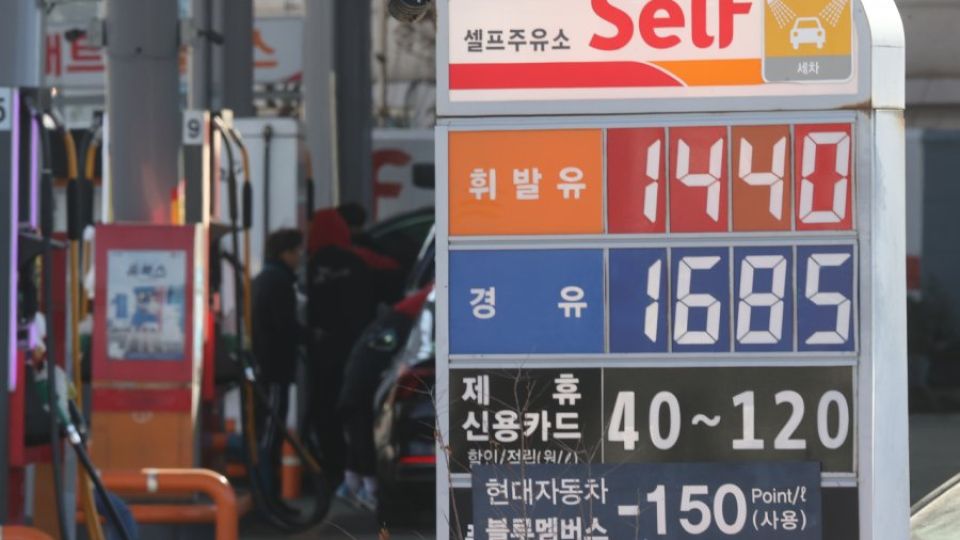December 20, 2022
SEOUL – The Ministry of Economy and Finance announced Monday plans to extend tax reduction on certain products such as vehicle and energy fuel as well as consumption tax on passenger vehicles. However, the tax cut for gasoline will only be partially reduced due to some stabilization.
The fuel tax reduction for vehicles, set to expire at the end of the year, has been extended to April 30. The cut for gasoline will be adjusted from the current 37 percent to 25 percent, as its price has stabilized, the ministry said.
The 37 percent discount for the consumption of diesel and liquefied petroleum gas butane will stay unchanged through April.
Under the new scheme, the gasoline fuel tax drops by 205 won ($0.16) per liter, diesel by 212 won and liquefied petroleum gas butane by 73 won. Since the tax cut for gasoline has been reduced, the tariff will increase from 516 won to 615 won per liter, up 99 won. If the tax cut is not applied, the duty would be 820 won per liter.
A 30 percent cut in the consumption tax on the purchase of passenger cars was to expire this month, too, but the government decided to extend the reduction until June to encourage domestic consumption.
The tax cut, limited to 1 million won, brings down the tax rate from 5 percent to 3.5 percent.
The extension will also benefit consumers who could not receive the tax break as the delivery for new cars have been delayed — as taxes are imposed on the time of delivery rather than the order, the ministry said.
In recent years, customers have had to wait 10 to 18 months after making an order for a vehicle until the actual delivery happens, due to an ongoing supply shortage of automotive semiconductors.
With energy prices soaring due to Russia’s ongoing war in Ukraine, a 15 percent cut on the tax for power generator fuels such as liquefied natural gas and bituminous coal will be maintained until the first half of next year.
As of the end of October, LNG prices had soared 6.8 times and bituminous coal 6.4 times from two years before.
Authorities hope the tax reduction can temper the spike in prices for public utilities such as electric and gas. In October, public utility charges in Korea surged by 23.1 percent from a year prior.
The extension of tax cut measures will go in effect from Jan. 1, following administrative procedures including a Cabinet meeting slated for Dec. 27.


